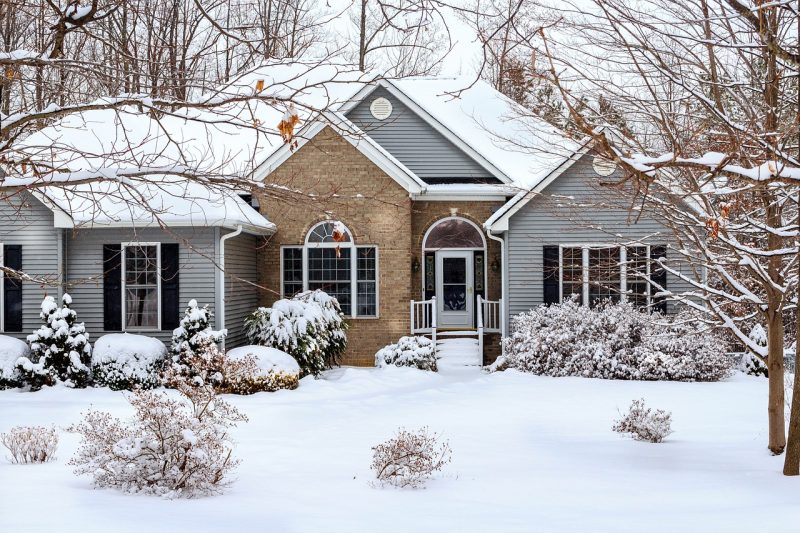
Winter is a great time to focus on indoor air quality!
Winter provides an excellent opportunity to prioritize and improve indoor air quality. As we spend more time indoors during the colder months, enhancing the air we breathe becomes more important. Taking steps to improve indoor air quality will address the risks of potential pollutants like dust, dirt, mold, and allergens. Additionally, it’s crucial to be aware of more serious concerns such as Radon and carbon monoxide to create a healthier indoor environment.
For household members with allergies or respiratory issues, maintaining good indoor air quality is especially important. The Environmental Protection Agency (EPA) recognizes indoor air pollution as one of the top five environmental risks to public health, emphasizing that indoor pollution levels can be 2-5 times higher than outdoor levels.
Consider these seven tips to improve your home’s indoor air quality and overall well-being during the winter season.
1. Steam Clean Your Carpets:

Professionally cleaning your carpet improves indoor air quality
Professionally cleaning your carpets is a crucial step to improve indoor air quality. Carpets act as dirt sponges, and standard cleaning methods may not be sufficient. Hiring professional steam cleaners with industrial-strength equipment can effectively remove dirt and allergens, preserving your investment.
To maintain cleanliness and extend carpet life:
- Consider professional cleaning at least once a year.
- For households with pets or children, biannual cleaning is recommended.
- Reach out to us for recommendations on qualified carpet cleaning companies that have delivered exceptional results for our clients.
2. Maintain Your Furnace:
Ensuring your furnace operates optimally involves cleaning air ducts and upgrading filters. Follow these furnace maintenance guidelines:
- Clean all components of your furnace’s air circulation system every 3-5 years, especially if you have pets, allergies, or respiratory conditions.
- Hire qualified professionals for air duct cleaning, as Michigan mandates certification and a category three mechanical contractor’s license for all cleaners.
- When upgrading filters, I recommend hiring an HVAC company to install a four or five-inch media filter holder, significantly reducing the number of particles missed by a typical one-inch filter.
For effective filter management:
- Change furnace filters monthly.
- Establish a purchasing schedule for bulk filters, ensuring timely replacements.
3. Be Mindful of Carbon Monoxide:
Be vigilant about potential carbon monoxide sources such as fumes from vehicles, small engines, stoves, lanterns, grills, fireplaces, gas ranges, and furnaces. This odorless gas can be fatal when accumulated indoors.
To take care of your carbon monoxide detector:
- Change carbon monoxide detector batteries at least twice a year.
- Consider purchasing a new carbon monoxide alarm every 5 to 7 years.
4. Use Air Purifiers:

An air purifier can reduce allergens in the home and greatly improve indoor air quality.
Invest in a room air purifier, especially if someone in your household is sensitive to air irritants. Opt for purifiers with HEPA filters for effective allergen reduction.
Considerations for air purifiers:
- Choose a high-quality air purifier that circulates a significant amount of air and has low noise ratings.
- I recommend the brand Blueair but do some research to figure out what works best for you.
- Remember to replace the filter at least once a year.
5. Install A Humidifier If You Have A Forced-Air Furnace:
Getting your home to the proper humidity level will make a noticeable difference in how comfortable your home feels.
Maintain indoor humidity levels between 30-50% to prevent mold growth and reduce dust mites. Use a dehumidifier when necessary to regulate humidity levels effectively. If your home humidity level stays around 45%, your living environment will be cleaner, healthier, and more comfortable.
To take care of your humidifier:
- Change the filter once a year.
- Have an HVAC contractor take care of this for you during an annual HVAC inspection. You can read more about HVAC systems here.
6. Check For Mold And Mold-Producing Conditions In Your Home:
Combat mold, a significant threat to indoor air quality, by addressing water presence and ensuring proper air circulation.
Common causes of mold:
- Roof leaks and inadequate ventilation.
- Foundation leaks and poor exterior grading.
- High interior humidity and improperly vented bathrooms.
- Overflowing appliances and plumbing leaks.
Prevent mold growth:
- Dehumidify and heat the air in your basement, eliminating moist air by running a dehumidifier all summer. If possible, maintain the air temperature in the basement close to that of the rest of the home.
- Check for water seepage along the foundation, ensuring gutters and downspouts keep water away from the foundation. Maintain a positive grade away from the house.
- Check your attic for any roof leaks. If you have not checked your attic in many years, it makes sense to hire a roofing company to check for any moisture in the attic from improperly vented fans or leaks along with the flashings and soffits. Make sure that the bathroom fan ducts are discharging properly to the outside.
7. Test Your Home for Radon:
Radon is an odorless radioactive gas that forms naturally when certain minerals in the earth break down and can rise through cracks in buildings, poisoning both people and animals. According to the EPA, it is the leading cause of lung cancer among non-smokers.
Take these essential steps to ensure your home is free of unsafe radon levels:
- Conduct a radon test using a kit, available for purchase locally or online.
- If you opt to purchase a test kit, consider Airthings Corentium Home Radon Detector.
- Consider a radon mitigation system installation, with costs ranging from $750 to $1,200 depending on your location.
- Check your radon system regularly by looking at the pressure reading on the vertical tube in your basement to verify it is pulling air.
- Replace the radon mitigation system approximately every 10 years.
For Washtenaw County residents:
- Purchase a radon test kit for $10 from the Washtenaw County Environmental Health Division.
- Ypsilanti residents can acquire radon test kits from City Hall.
- Alternatively, you can order a test kit online.
- You can visit this site for more information about radon mitigation in Michigan.
Enhancing indoor air quality during winter ensures a healthier and more inviting home. Bid farewell to pollutants, evict allergens, and thwart mold growth by following these tips. Reach out for any questions or additional recommendations!










